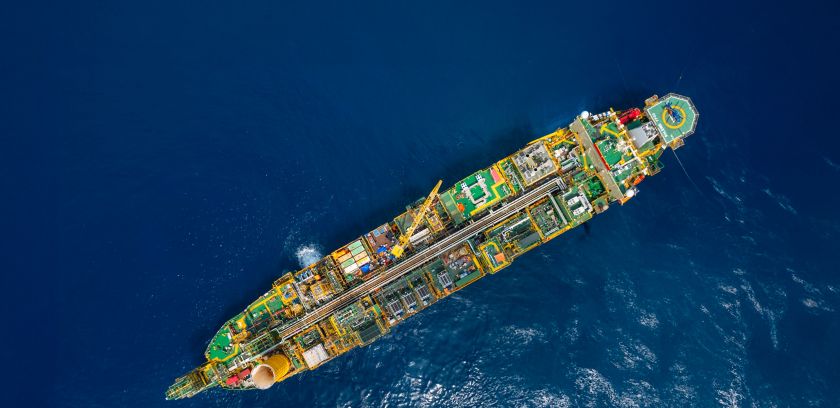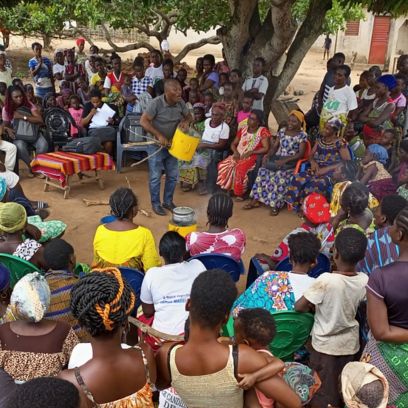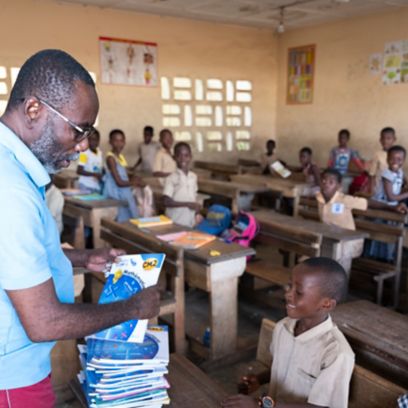Type of activity
Bioenergy
Oil & Gas
Economic diversification
Access to energy
Community health
Education

Present in Côte d'Ivoire in the exploration sector, we are working on the development of Baleine, the most important hydrocarbon discovery in the country and the first net-zero upstream development (Scope 1 and 2 emissions) in Africa. Carbon neutrality will be achieved by using a combination of emission offsetting activities, through forest conservation and restoration initiatives and improved cookstoves distribution projects. The Baleine discovery plays a key role in the country’s industrial development as well as in the energy transition scenario.
In the country we aim to strengthen and diversify our traditional portfolio and to enhance the value of gas. With the start of vegetable oil production in Côte d’Ivoire we achieved a milestone fully in line with our decarbonization strategy. This project will feed our biorefineries with sustainable feedstock, while at the same time integrating Côte d’Ivoire in the value chain of biofuels, generating a positive impact on the families of local farmers with whom we collaborate through long-term agreements. Our activities run parallel with local development activities and the promotion of access to energy, as indicated by the Sustainable Development Goals of the 2030 Agenda of the United Nations.
We entered the country with Agip Côte d'Ivoire through acquisition and concession agreements and we now hold shares in several blocks in the deepwater. Baleine is located in those blocks known as CI-101 and CI-802. The production of gas from the field also facilitates the extension of access to energy to the population. With Baleine, Côte d’Ivoire assumes the role of an energy hub capable of exporting energy to neighbouring countries. In addition, initiatives are being developed in the agro-industrial sector for the production of raw materials to be used in bio-refining.
The production and the export of vegetable oil to supply Eni’s biorefineries leverages waste from rubber production. The production of vegetable oil in the country, used for the production of sustainable fuels, was initiated thanks to an agreement signed with the Federation of Hevea Producers (FPH), which brings together around 300,000 farmers. Vegetable oil has received certification under ISCC-EU, one of the first schemes launched in Europe for the sustainability of products in the renewable energy sector.
The distribution of improved cookstoves is underway among the most vulnerable families, to reduce the consumption of wood biomass and related climate-changing emissions. These are cooking systems with high thermal efficiency that allow for significant fuel savings. Similarly, to combat deforestation, a project has been started for the conservation, restoration and management of 14 forests as part of REDD+ scheme (Reducing Emissions from Deforestation and forest Degradation), the programme for the protection of the forest heritage defined by the United Nations. In parallel, we promote sustainable farming practices that improve land productivity, benefiting local farmers.
There are several initiatives with different areas of intervention:
Discover the stories, goals and results of our commitment to a just transition in the country.
Download the documentThe production of gas and the commitment to local development, this is how we share the country's journey towards the energy transition.
The operation is part of Eni’s Upstream optimisation strategy to accelerate value creation from exploration discoveries through the sale of interests.
The gas produced will entirely be used to meet domestic demand, ensuring a stable and long-lasting power supply across the country.
The rapid development of Baleine Phase 2 confirms Eni's excellent time-to-market, enhanced also by the renovation and reuse of the 2 units.
The blocks’ proximity to the important Calao field, discovered in March 2024, offers a strategic opportunity to create additional synergies in the area.
The event, held in Dubai, marks the start of phase 2 of the project, which will increase oil and gas production from the field.
The President of the Italian Republic visited our infrastructure in the country and the school complex in Vridi, which has been recently renovated by Eni.
Calao, located offshore Côte d'Ivoire, is considered the country's second-largest discovery after Baleine.
The President of Côte d'Ivoire and the CEO of Eni participated in the ceremony for the start of production of Baleine.
Memorandum of understanding signed between Eni and the Ivorian Ministry of Mines, Petroleum and Energy. Activities have started to integrate the country into the biofuels supply chain.
Oil and gas production started from the Baleine field, off the coast of Côte d'Ivoire, with partner PETROCI.
The ship will allow the field’s production start-up.
The results of the well confirm the extension of the Baleine field.
The initiative aims to replace traditional cooking devices, reducing exposure to unhealthy smoke and decreasing pressure on forests.
The exploratory well is being examined to test its actual potential.
We signed the contracts for two new exploration blocks off the coast of Côte d'Ivoire
We pursue the goal of acquiring high-potential reservoirs like these, using proprietary technologies.
The company starts its activities in the country.

It is the largest hydrocarbon discovery in the country and it will also be the first net-zero development in Africa.

The project distributes improved cooking stoves with the aim of reducing wood biomass consumption and associated emissions.

Our programme supports education for compulsory school students, families, teachers and facilities.

We strengthen the local health system through the training of medical personnel and provision of medical supplies.
Visit the agri-feedstock projects that contribute to the increasingly sustainable supply of our biorefineries.
The interactive special